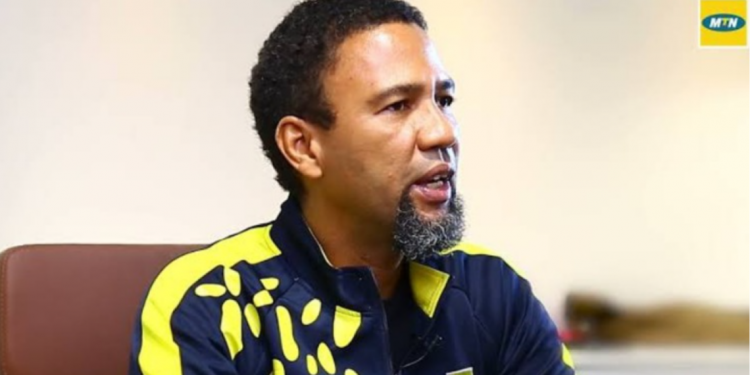MTN Nigeria, the largest telecom operator in the country, is sounding the alarm on the urgent need for the telecommunications sector to return to profitability to ensure its long-term viability. During a facility tour in Ibeju-Lekki, Lagos, CEO Karl Toriola shared these concerns with Fellows of the Media Innovation Programme, emphasizing the financial challenges that threaten the industry’s stability.
With a customer base of about 78 million subscribers, Toriola pointed out that the sector has been grappling with significant losses. He highlighted that MTN is currently drawing on profits accumulated over the past two decades, which is not a sustainable strategy. According to the 2023 Sustainability Report, the company has invested N2.6 billion in corporate social initiatives, underscoring its commitment to social responsibility even amid financial strain.
“We must return the industry to profitability,” Toriola declared, advocating for urgent reforms to address the challenges facing the sector. Earlier this year, telecom operators renewed their calls for a tariff hike—the first in 11 years—arguing that such adjustments are essential to manage rising operational costs and enhance service quality. They warn that without these changes, the financial health of the industry and the quality of services offered will continue to decline.
Toriola cited critical pressures, including soaring diesel prices needed to power base transceiver stations. He warned, “There should be no delusion; if the tariff doesn’t go up, we will shut down,” highlighting the pressing need for tariff adjustments that align with current economic realities.
Moreover, Toriola lamented a decline in MTN’s tax contributions, once among the highest in Nigeria, due to these ongoing financial struggles. The company’s first-quarter results reflect a cautious approach to capital expenditure for 2024, a sentiment echoed by other major players in the market, such as Airtel.
In a stark revelation, MTN Nigeria reported a staggering loss of N519.1 billion in the first half of 2024, largely driven by foreign exchange losses tied to the naira’s devaluation and rampant inflation. Toriola warned that the company may need to suspend Unstructured Supplementary Service Data (USSD) banking services due to a significant N250 billion debt owed by Nigerian banks unless there is a resolution regarding tariffs.
Despite the dire situation, Toriola expressed hope for intervention from the new Governor of the Central Bank of Nigeria, Yemi Cardoso, and the Executive Vice Chairman of the Nigerian Communications Commission, Dr. Aminu Maida. He underscored the critical role of the telecom industry in supporting Nigeria’s economy, urging swift action from both the government and regulators to prevent severe repercussions for the sector and the broader economy.
As MTN navigates these challenges, the call for reforms and strategic adjustments resonates not only within Nigeria but also across the African telecommunications landscape, highlighting the importance of a sustainable and profitable telecom sector for economic growth.










